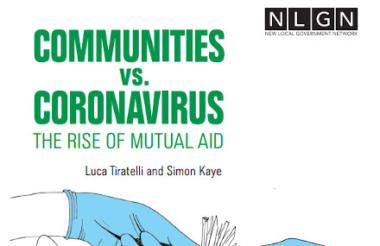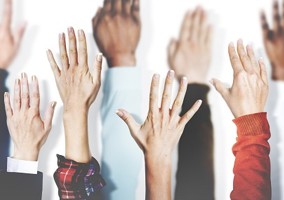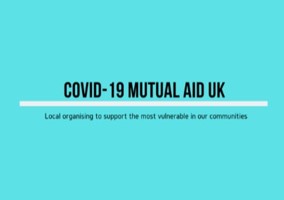Mutual aid groups have been a vital part of the country’s response to Covid-19, research by the New Local Government Network (NLGN) has found.
The NLGN report, Communities vs Coronavirus: The Rise of Mutual Aid, suggests that a huge proportion of people shielding during the pandemic were directly supported by local volunteer groups.
Mutual aid groups took on tasks such as shopping and medicine delivery as well as offering emotional support to people who were vulnerable.
The research finds that these groups were reliant on working-age people, many of whom were furloughed or were spending more time in their local areas.
“While the mutual aid phenomenon has emerged across the country and in all kinds of varied communities, it has been significantly assisted by access to digital infrastructure and to social capital. On this latter point, the furlough scheme has been a major driver of participation,” the report reads.
The report recommends introducing flexible working practices to give people “more time to be better neighbours” as the pandemic eases.
Danny Kruger, MP for Devizes, said: “The essential finding of the crisis, detailed in this report, is that there exists a great reservoir of latent goodwill and community spirit which can translate into actual capability in times of crisis.
“We need a new recognition by national and local government of the latent capability of communities; and an expectation – incentivised and even mandated by policy – that we must make use of this capability. This report provides vital evidence of the opportunity and helps point the way to a better model.”
Mutual aid groups had more impact than large government-led schemes
The research suggests that the small size of these groups was a key driver in their success.
Smaller mutual aid groups were able to act more quickly and have a more positive impact than big, government-led schemes like the GoodSam NHS app, the research finds.
A highly localised approach to supporting communities often means more people can be involved to a greater extent, and they can respond more directly to the specific conditions in their area.
“Our research reveals a wide perception that central government has failed to capture the sheer potential generated by the community response to the crisis,” the research says.
It adds: “By limiting itself to a relatively discrete offer, a group has the chance to perfect what it does, and build momentum and competence in the process. This in turn will help them build up trust within the wider community, and with local stakeholders such as the council, voluntary sector and businesses.”
NLGN finds that local authorities had a key role in supporting these groups by providing funding, coordinating volunteers or providing spaces. But “some councils have been inclined to micromanage groups, while at the other extreme, others have demonstrated a lack of interest and support: neither stance has been conducive to their success”.
The report adds that local government should play a facilitating role moving forward.
Mutual aid groups have also faced challenges in managing the morale and conduct of their members.
'The mutual aid phenomenon is a powerful demonstration of the potential for community power'
Simon Kaye, senior policy researcher at NLGN and co-author of the report, said: “The public response to the Covid-19 pandemic has been a source of much-needed hope. Thousands of spontaneous, voluntary mutual aid groups have emerged to support the most vulnerable people in our society. In many cases these groups have been able to help people far more rapidly and flexibly than traditional public services.
“The mutual aid phenomenon is a powerful demonstration of the potential for community power in the UK. We now need to focus on how community collaboration can outlast this crisis and make our places more resilient in future.
“For this to happen, lessons must be learnt. National government must resolve to empower localities and give people the free time they need to be better neighbours. Councils, meanwhile, must recognise the crucial role they can play and the make-or-break power they often wield over community groups.”
Related articles












